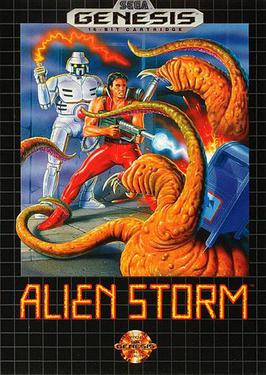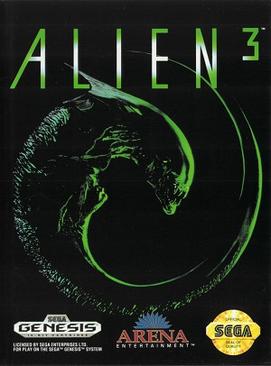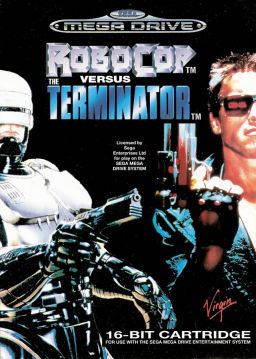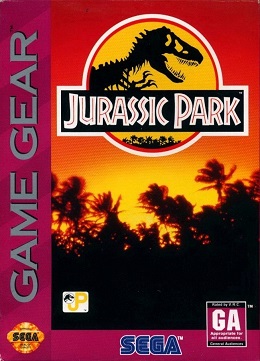
Dr. Robotnik's Mean Bean Machine is a falling block puzzle game developed by Compile and published by Sega. It was released for the Sega Genesis / Mega Drive in North America and Europe in November 1993, and ported to the Game Gear in 1993 and Master System in 1994.

Castle of Illusion Starring Mickey Mouse is a 1990 platform game developed and published by Sega and released for the Mega Drive/Genesis. An 8-bit version of the game was later released for the Master System and Game Gear. The game follows Mickey Mouse on a quest to save Minnie Mouse from the evil witch Mizrabel. It is the first game in Sega's Illusion video game series starring Mickey.

Sonic the Hedgehog 2 is a 1992 platform game developed by Aspect and published by Sega for the Master System and Game Gear. It is the sequel to the 8-bit Sonic the Hedgehog (1991) and follows Sonic as he attempts to get the Chaos Emeralds back to rescue his friend Miles "Tails" Prower from Dr. Robotnik. Like the first Sonic the Hedgehog, players run through levels at high speeds while collecting rings and defeating enemies. Although it shares the same title with Sonic the Hedgehog 2 for the Sega Genesis and their releases coincided, the games have little in common and share no levels.

Terminator 2: Judgment Day or T2 is a light gun shooter based on the film of the same name, produced by Midway Manufacturing Company as an arcade video game in 1991. Developed in tandem with the movie, several actors from the film reprise their roles for the game and are featured as part of the game's photorealistic digitized graphics. The game's plot largely follows that of the film, casting up to two players as the T-800 "terminator" cyborg from the film, sent back in time to protect John Connor from assassination by the T-1000 terminator. A success in arcades, home conversions of the game were released by Acclaim Entertainment for various platforms under the title of T2: The Arcade Game in order to avoid confusion with the numerous tie-in games also based on the movie.

PGA Tour Golf is a golf video game and the first in the PGA Tour game series. It was developed by Sterling Silver Software and released in 1990, for MS-DOS. It was initially published by Electronic Arts, which subsequently released versions of the game for Sega Genesis and Amiga in 1991, followed by a version for the SNES in 1992. By 1994, Tengen had published versions for Sega's Master System and Game Gear consoles. PGA Tour Golf received generally positive reviews for its realism, sound, and camera. Several critics considered the computer versions to be the best golf game available at the time of its release. It was followed by PGA Tour Golf II.

There have been several video games based on the 1991 film Hook. A side-scrolling platform game for the Nintendo Entertainment System (NES) and Game Boy was released in the United States in February 1992. Subsequent side-scrolling platform games were released for the Commodore 64 and the Super Nintendo Entertainment System (SNES), and an arcade beat ‘em up by Irem later in 1992, followed by versions for the Sega CD, Sega Genesis, and Sega's handheld Game Gear console in 1993.

Alien Storm (エイリアンストーム) is a beat 'em up shooter released as an arcade video game by Sega in 1990. It was ported to the Genesis/Mega Drive and Master System. The Mega Drive version was re-released on Wii's Virtual Console in 2007 and was also included on Sonic's Ultimate Genesis Collection for Xbox 360 and PlayStation 3. The game was also re-released on the Nintendo Switch Online + Expansion Pack in 2022.

Disney's The Jungle Book is a series of platform video games based on the 1967 Disney animated film of the same name. The game was released by Virgin Interactive Entertainment in 1994 for the Game Boy, Nintendo Entertainment System, Master System, Genesis/Mega Drive, Game Gear, Super Nintendo Entertainment System, and MS-DOS. While gameplay is the same on all versions, technological differences between the systems forced changes – in some case drastic – in level design, resulting in six fairly different versions of the 'same' game. This article is largely based upon the Genesis version.

Alien 3 is a run and gun game based on the 1992 film of the same name. It was released for the Genesis and Amiga in 1992, then for the Commodore 64, Game Boy, Game Gear, Nintendo Entertainment System, Super Nintendo Entertainment System, and Master System.

Ayrton Senna's Super Monaco GP II is an arcade-style Formula One racing video game developed and manufactured by Sega for the Sega Genesis and Mega Drive, Master System, and the Game Gear in 1992. It is a follow-up to Super Monaco GP. The game was also endorsed by, and had technical input from, the then-Formula One champion Ayrton Senna. Gameplay includes a World Championship season featuring recreations of the tracks in the 1991 Formula One World Championship, along with a three-race "Senna GP" mode set on fictional tracks.

RoboCop Versus The Terminator is a run and gun game released for the Super Nintendo Entertainment System, Master System, and Game Gear in 1993, with later ports to the Sega Genesis and Game Boy in 1994. It is based on the 1992 four-issue comic book mini-series of the same name, which is a crossover between the RoboCop and Terminator franchises. Two characters from the films are portrayed by Arnold Schwarzenegger from 1984's The Terminator and Peter Weller from 1987's RoboCop and the 1990 sequel, although both actors did not reprise their roles in this game.

Disney's Ariel the Little Mermaid, usually shorted to simply Ariel the Little Mermaid, is a 1992 video game developed by BlueSky Software for the Sega Genesis, Game Gear and Master System, based on the 1989 film The Little Mermaid.

Super Monaco GP is a Formula One racing simulation video game released by Sega, originally as a Sega X Board arcade game in 1989, followed by ports for multiple video game consoles and home computers in the early 1990s. It is the sequel to the 1979 arcade game Monaco GP. The arcade game consists of one race, the Monaco Grand Prix, but later ports added more courses and game modes based on the 1989 Formula One World Championship.

Road Rash is a 1991 racing and vehicular combat video game originally developed and published by Electronic Arts (EA) for the Sega Genesis. It was subsequently ported to a variety of contemporary systems by differing companies. The game is centered around a series of motorcycle races throughout California that the player must win to advance to higher-difficulty races, while engaging in unarmed and armed combat to hinder the other racers.

Jurassic Park is a 1993 platform game developed and published by Sega for the Game Gear. Another version, with identical gameplay, was also released for the Master System. The game is based on the 1993 film of the same name. It was praised for its graphics, but criticized for its short length and easy gameplay.

The Terminator is a 1993 platform shoot 'em up game developed and published by Virgin Games for the Sega CD. It is based on the 1984 film of the same name, and includes full motion video from the film. The game was praised for its graphics and its soundtrack performed by Tommy Tallarico, although the film footage was considered low quality. The gameplay also received some criticism.

Terminator 2: Judgment Day is a 1991 action-adventure game developed by Bits Studios and published by LJN. It is based on the 1991 film of the same name, and was released for the Game Boy. It was praised for its graphics, gameplay, and music.

Terminator 2: Judgment Day is an action game released for several 8-bit consoles, including the Nintendo Entertainment System (NES), and Sega's Game Gear and Master System. It is based on the 1991 film of the same name. The NES version was developed by Software Creations and published by LJN in February 1992. The Sega versions were published in late 1993, by Flying Edge.

Terminator 2: Judgment Day is a 1993 action game developed by Bits Studios for two 16-bit game consoles: the Sega Genesis and the Super Nintendo Entertainment System (SNES). It was published by Acclaim Entertainment through subsidiary companies: Flying Edge for the Genesis, and LJN for the SNES. It is based on the 1991 film of the same name, and features side-scrolling and driving levels. It received generally negative reviews.



















